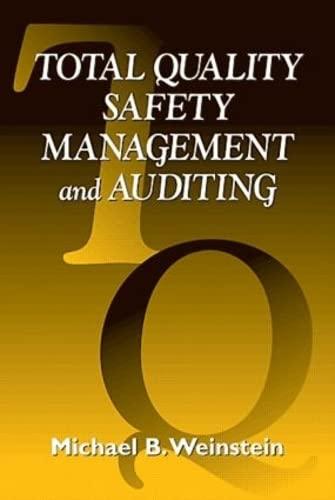Question
Midwest Industrial Products Corporation makes two products: product H and product L. Product H is expected to sell 30,000 units and product L 50,000 units
Midwest Industrial Products Corporation makes two products: product H and product L. Product H is expected to sell 30,000 units and product L 50,000 units next year. A unit of either product requires 0.2 direct labour-hours.
The companys total manufacturing overhead for the year is expected to be $2,920,000. Required:
The company currently applies manufacturing overhead to products using direct labour-hours as the allocation base.
If this method is followed, how much overhead cost will be applied to each product? Compute both the overhead cost per unit and the total amount of overhead cost that will be applied to each product. (In other words, how much overhead cost will be applied to a unit of product H? Product L? How much overhead cost will be applied in total to all the units of product H? Product L?) Management is considering an activity-based costing system and would like to know what impact this change might have on product costs. For the purpose of discussion, it has been suggested that all of the manufacturing overhead be treated as a product-level cost. The total manufacturing overhead would be divided in half between the two products, with $1,460,000 assigned to product H and $1,460,000 assigned to product L. If this suggestion is followed, how much overhead cost per unit will be applied to each product? Explain the impact on unit product costs of the switch in costing systems.
Step by Step Solution
There are 3 Steps involved in it
Step: 1

Get Instant Access to Expert-Tailored Solutions
See step-by-step solutions with expert insights and AI powered tools for academic success
Step: 2

Step: 3

Ace Your Homework with AI
Get the answers you need in no time with our AI-driven, step-by-step assistance
Get Started


